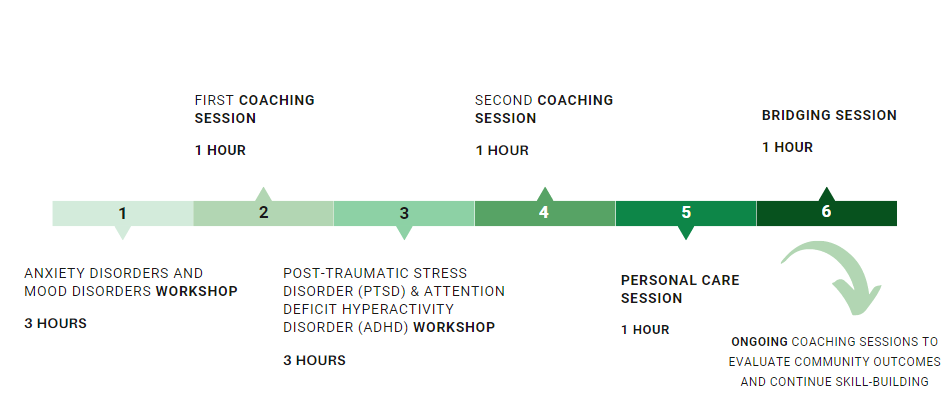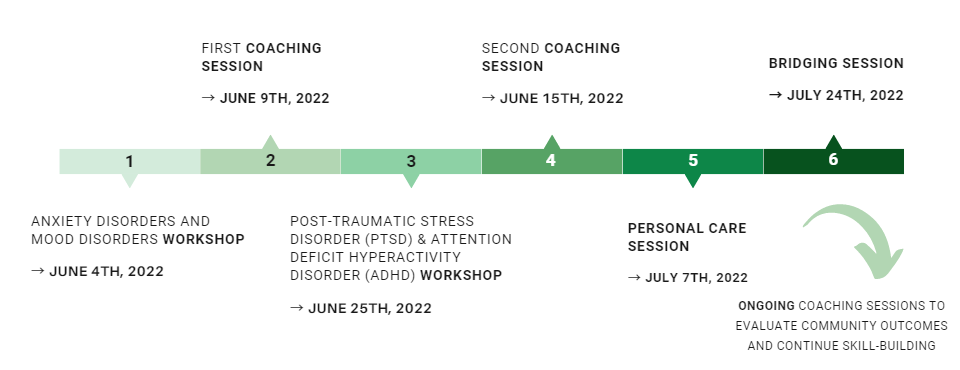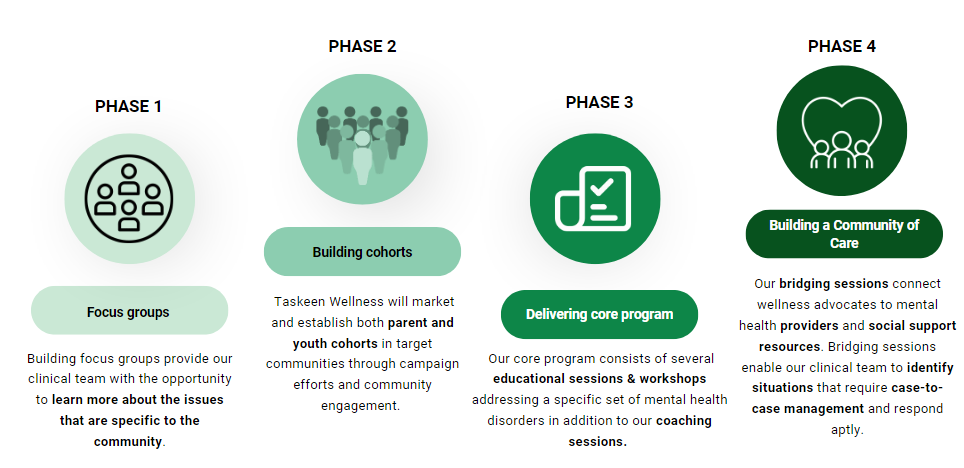Thorncliffe Park And Flemingdon Park Debrief of Cohort #1: Parents
WHO:
- Our first parent cohort consisted of community leaders, active volunteers, health workers, and community ambassadors.
- 100% of our (4) participants in our first parent cohort were affiliated with the Flemingdon Health Centre (FHC).
- 100% of our (4) participants in our first parent cohort were women.
WHAT:
Wellness advocates participated in several structured educational sessions totaling 10 hours led by our team of mental health professionals. Coaching sessions will be ongoing.

DATES:
Our initial sessions took place on a weekly basis. The program intends to maintain a rolling intake of participants while offering ongoing coaching sessions as a form of long-term support and to evaluate community outcomes and progress.

WHERE:
In our virtual workshops, wellness advocates had the opportunity to reflect on their current mental health and develop strategies for maintaining their health and well-being.
Wellness advocates learned to:
- Acknowledge the significance of mental health as part of their personal and professional life.
- Recognize and dispel the stigmas that typically surround mental health disorders.
- Recognize indicators of a possible mental health disorder in youth and adults.
- Develop an understanding of the strategies and treatment options available for mental health disorders.
- Have a greater understanding of mental health disorders and how they can occur.
- Develop greater comfort in seeking help for themselves and others.
WHY:
The physical and psychosocial consequences of the COVID-19 pandemic have exacerbated pre-existing disparities in access to mental health care, support, and resources. However, in high-risk communities, like Thorncliffe Park and Flemingdon Park, the lack of diverse and inclusive mental health services acts as an additional barrier to the already limited support available for parents.
Taskeen Wellness’s program model addresses long-standing barriers to mental health support by actively addressing gaps in communication, promoting connectedness, and building resiliency within communities.
INSIGHTS AND EXPERIENCE:
- In our coaching sessions, we identified a need for more tailored and culturally responsive trauma resources and social supports for victims of domestic violence.
- In our coaching sessions, wellness advocates expressed observing newcomers and refugees struggle to adapt, especially youth.
- Wellness advocates report a high incidence of caregiver burnout.
- More resources and providers are needed to address caregiver burnout

For more information on how we tailor our program to build resilient communities,
refer to our Program Guide.
